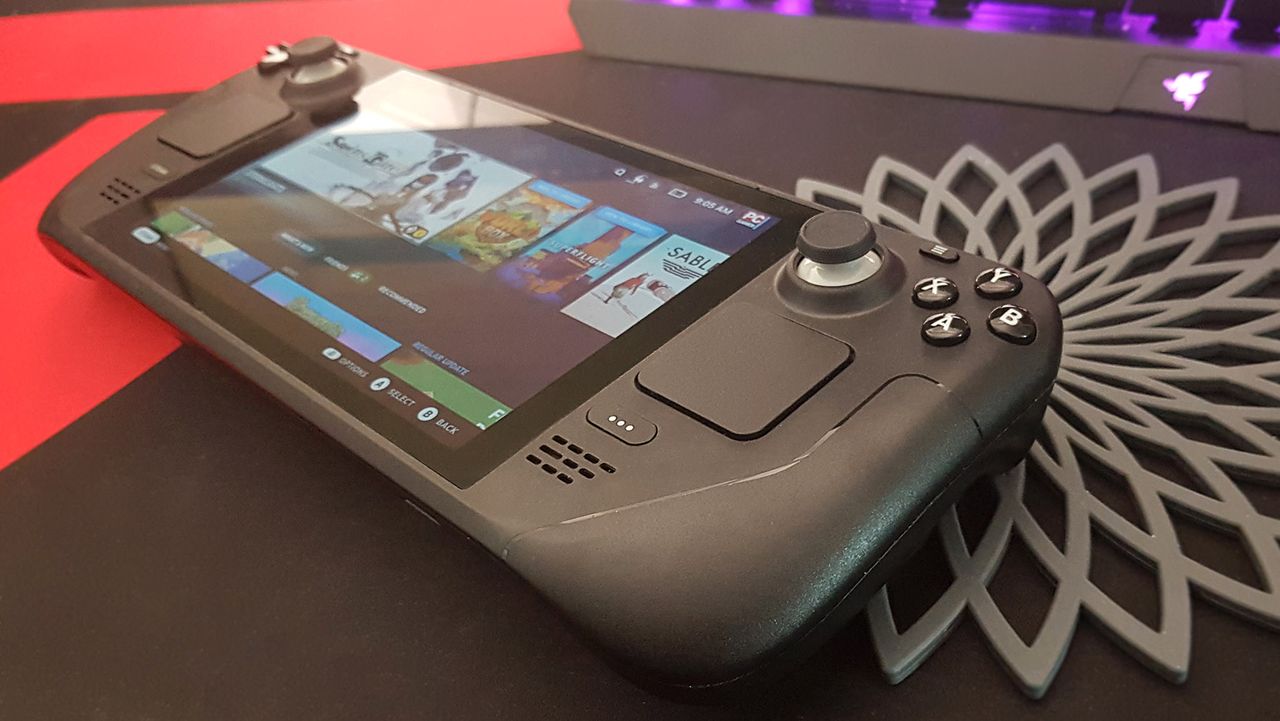
(Image credit: Future / Katie Watkins)
Valve has confirmed why there's no sign of the Steam Deck 2 in an interview. It puts to rest rumour and speculation, but also reveals the reality behind developing the next-gen handheld PC gaming device.
In an interview with IGN at the launch of the new Steam Machine, Pierre-Loup Griffais outlined that Valve had high expectations for the Steam Deck 2, saying: "I think we have a pretty good idea of what the next version of Steam Deck is going to be, but right now there's no offerings in... the SoC landscape, that we think would truly be a next-gen performance Steam Deck."
The problem, it seems, is hardware. In our review of the Steam Deck in 2022 when it launched, we mentioned that battery life was a problem when using the device to its full potential. Indeed, Griffais comments, saying: "We're not interested in getting to a point where it's 20 or 30, or even 50% more performance at the same battery life."
While expectant gamers might have to soak up the disappointment, waiting for the hardware that will give more hours of gaming without compromising on the performance is surely worth it – and it sounds like Valve wants to develop the right solution for Steam Deck 2, rather than just push out something iterative.
The comments come off the back of Valve making a range of other hardware announcements, including the Steam Frame (a VR headset), the aforementioned new Steam Machine (a console-style compact PC), and a new Steam Controller.
The current Steam Deck runs on AMD hardware with four Zen cores, paired with a GPU and yes, it's an x86 system. That could be a direction that Steam moves in. While the new Steam Frame uses an ARM-based chip (Snapdragon 8 Gen 3), the new Steam Machine sticks to AMD x86 hardware again.
However, that's not the end of the story: the Steam Frame is a different type of device and follows the path of most other VR headsets working with Snapdragon hardware. According to The Verge, Steam Frame uses emulation to run some Windows games locally.
The whole argument behind ARM hardware has always been better performance for the battery life. Qualcomm has pushed hardware like the Snapdragon X to drag Windows over to ARM after years of trying – and it finally has momentum.
So there's potential in a move to ARM for Steam Deck too, but I suspect that Valve would want to see more work done to have games run natively on ARM, more done to smooth out the choppy emulation experience, and to make sure older titles are playable and not just cut off.
Like it or not, x86 still has a huge compatibility advantage over ARM when it comes to legacy software and ultimately, that's one of the defining factors ensuring a good user experience.

-
 C114 Communication Network
C114 Communication Network -
 Communication Home
Communication Home


